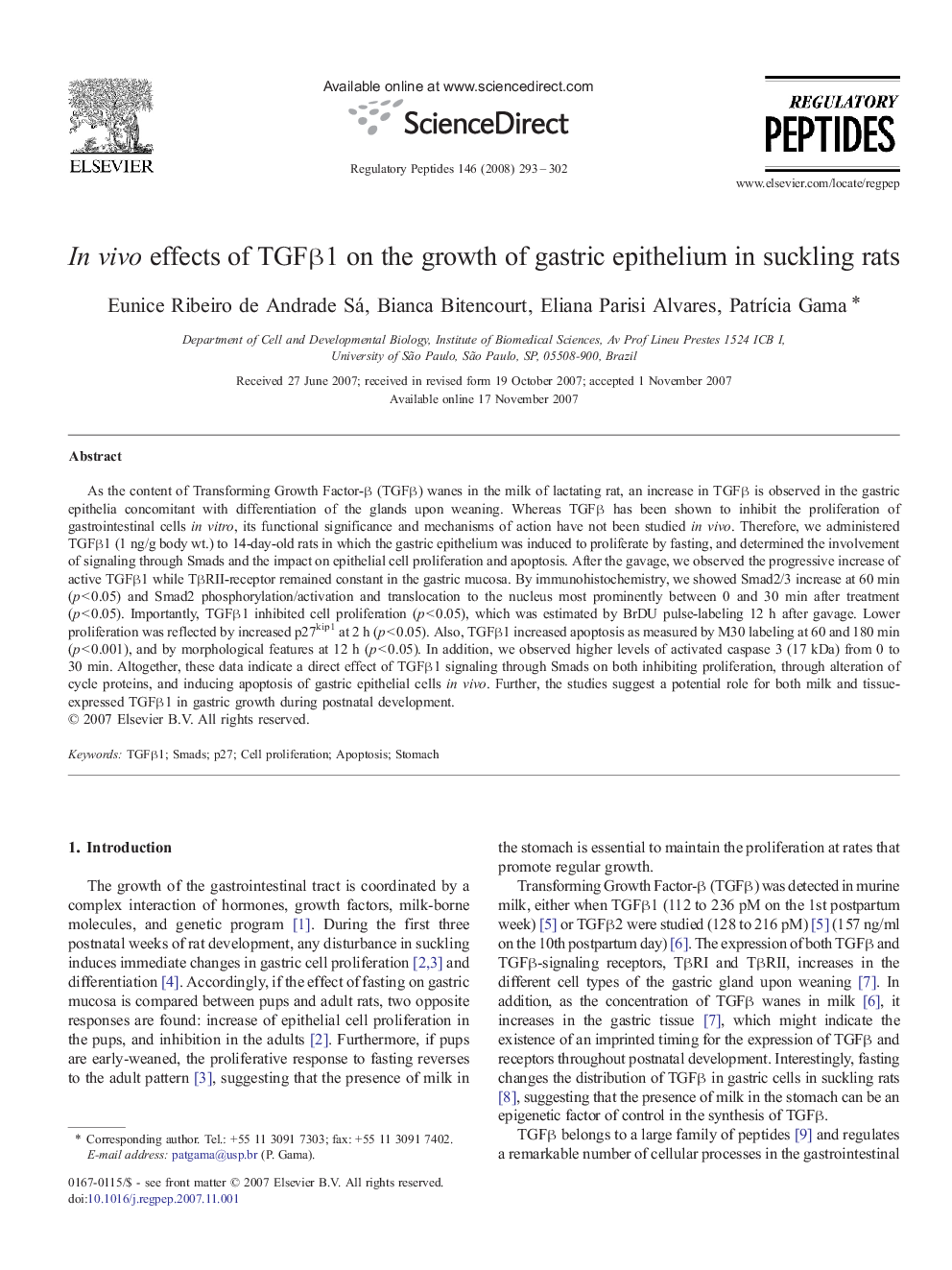| Article ID | Journal | Published Year | Pages | File Type |
|---|---|---|---|---|
| 2023253 | Regulatory Peptides | 2008 | 10 Pages |
Abstract
As the content of Transforming Growth Factor-β (TGFβ) wanes in the milk of lactating rat, an increase in TGFβ is observed in the gastric epithelia concomitant with differentiation of the glands upon weaning. Whereas TGFβ has been shown to inhibit the proliferation of gastrointestinal cells in vitro, its functional significance and mechanisms of action have not been studied in vivo. Therefore, we administered TGFβ1 (1 ng/g body wt.) to 14-day-old rats in which the gastric epithelium was induced to proliferate by fasting, and determined the involvement of signaling through Smads and the impact on epithelial cell proliferation and apoptosis. After the gavage, we observed the progressive increase of active TGFβ1 while TβRII-receptor remained constant in the gastric mucosa. By immunohistochemistry, we showed Smad2/3 increase at 60 min (p < 0.05) and Smad2 phosphorylation/activation and translocation to the nucleus most prominently between 0 and 30 min after treatment (p < 0.05). Importantly, TGFβ1 inhibited cell proliferation (p < 0.05), which was estimated by BrDU pulse-labeling 12 h after gavage. Lower proliferation was reflected by increased p27kip1 at 2 h (p < 0.05). Also, TGFβ1 increased apoptosis as measured by M30 labeling at 60 and 180 min (p < 0.001), and by morphological features at 12 h (p < 0.05). In addition, we observed higher levels of activated caspase 3 (17 kDa) from 0 to 30 min. Altogether, these data indicate a direct effect of TGFβ1 signaling through Smads on both inhibiting proliferation, through alteration of cycle proteins, and inducing apoptosis of gastric epithelial cells in vivo. Further, the studies suggest a potential role for both milk and tissue-expressed TGFβ1 in gastric growth during postnatal development.
Related Topics
Life Sciences
Biochemistry, Genetics and Molecular Biology
Biochemistry
Authors
Eunice Ribeiro de Andrade Sá, Bianca Bitencourt, Eliana Parisi Alvares, PatrÃcia Gama,
